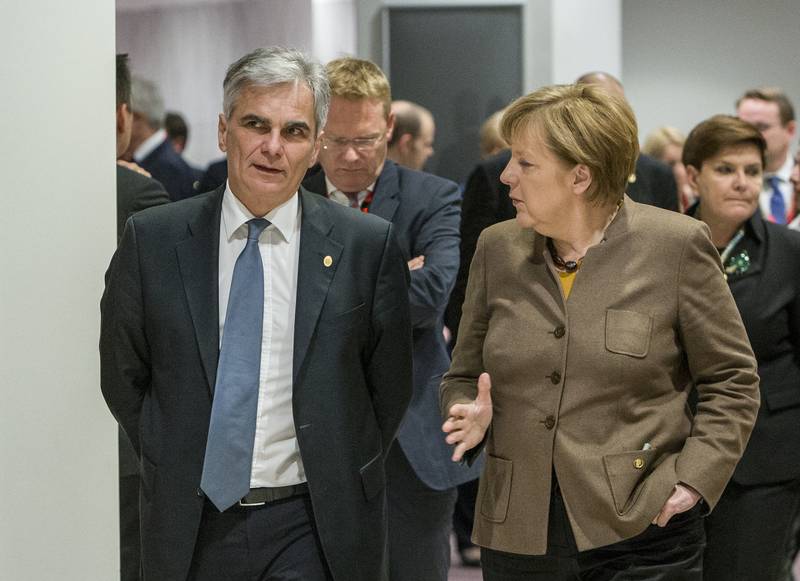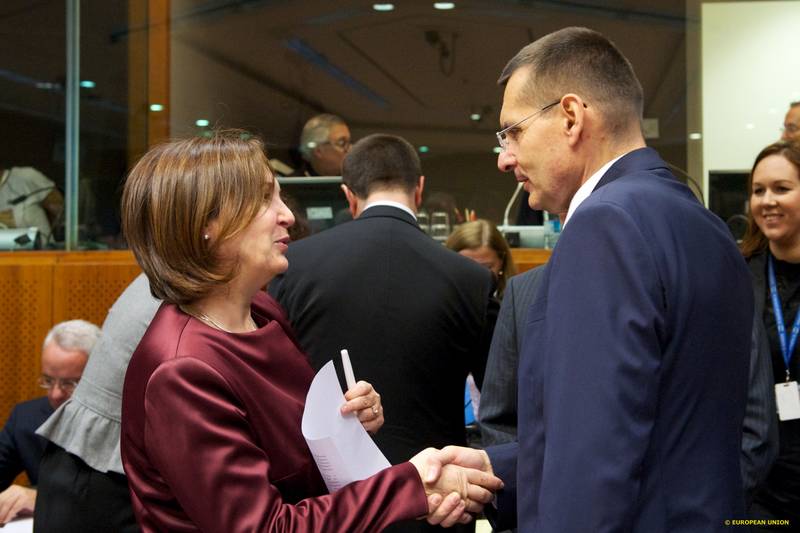Denmark reinstates unilaterally border control
Evelina Topalova, May 14, 2011
 Denmark is to restore the customs control on its internal borders with Germany and Sweden, with the measure expected to take effect within two to three weeks. The news came on the eve of May 12th meeting of the EU interior ministers on migration. The authorities in Copenhagen hurried up to reassure that the step did not imply reintroduction of passport control but rather refers to strengthening the fight against cross-border crime.
Denmark is to restore the customs control on its internal borders with Germany and Sweden, with the measure expected to take effect within two to three weeks. The news came on the eve of May 12th meeting of the EU interior ministers on migration. The authorities in Copenhagen hurried up to reassure that the step did not imply reintroduction of passport control but rather refers to strengthening the fight against cross-border crime.
Danish Finance Minister Claus Frederiksen, quoted by AFP, said that the measure was being taken as the country was facing growing cross-border crime over the past years. Media say that the decision was made under pressure by the populist right-wing party Danish People's Party, which has allegedly conditioned its support for the government's economic plan with reintroduction of border checks.
The European Commission asked immediately for explanation and warned it would not tolerate any violations of the principle of free movement of people. Brussels had been informed by Denmark that a political agreement on reinstatement of the checks had been reached and now is looking into the initiative to determine whether it is in accordance with the European rules.
Copenhagen's unilateral decision comes at a moment when debates are underway on a communication of the Commission on boosting border control and management of the Schengen area. The proposal was made on the backdrop of immigrant influx from North Africa foresees the possibility to restore temporarily internal border control in the event of "exceptional difficulties".
At a news conference after the meeting of EU interior ministers, EU  Commissioner for Home Affairs Cecilia Malmstrom confirmed that Denmark's decision was received but refused to comment on it until reviewing it in details.
Commissioner for Home Affairs Cecilia Malmstrom confirmed that Denmark's decision was received but refused to comment on it until reviewing it in details.
 Hungarian Interior Minister Sandor Pinter, whose country is holding the EU rotating presidency, added that his Danish counterpart had reassured him that Copenhagen's steps did not contradict the Schengen rules. Participants in the meeting were unanimous that the free movement of people was one of the main achievements of the EU and should be preserved, Pinter pointed out.
Hungarian Interior Minister Sandor Pinter, whose country is holding the EU rotating presidency, added that his Danish counterpart had reassured him that Copenhagen's steps did not contradict the Schengen rules. Participants in the meeting were unanimous that the free movement of people was one of the main achievements of the EU and should be preserved, Pinter pointed out.
And while the Commission refrains so far from making comments on the Danish initiative, members of the European Parliament were much more decisive. Joseph Daul, Chairman of the EPP Group, and Manfred Weber from the same group stated that reinstatement of permanent border controls in Denmark would be unacceptable. "We call on the European Commission to thoroughly check the Danish approach. If Denmark wants to question the consensus in Europe on this issue, then it should withdraw from the Schengen Accord, in which case Danish citizens would quickly feel the disadvantages," the press release reads. The two EPP representatives also called on the Danish parliament not to support the motion and  the major political forces, that support European integration, not to become hostages to political forces that follow solely their own interest.
the major political forces, that support European integration, not to become hostages to political forces that follow solely their own interest.
The ALDE group also joined the criticism. They asked the Commission to immediately take action to assess whether the Danish measures were in line with the principles of the free movement in the Schengen zone.
 Werner Faymann, Angela Merkel | © Council of the EU
Werner Faymann, Angela Merkel | © Council of the EU Rumyana Bachvarova, Petre Toba | © Council of the EU
Rumyana Bachvarova, Petre Toba | © Council of the EU Meglena Kuneva | © Council of the EU
Meglena Kuneva | © Council of the EU | © European Parliament
| © European Parliament | © The Council of the European Union
| © The Council of the European Union | © European Parliament
| © European Parliament